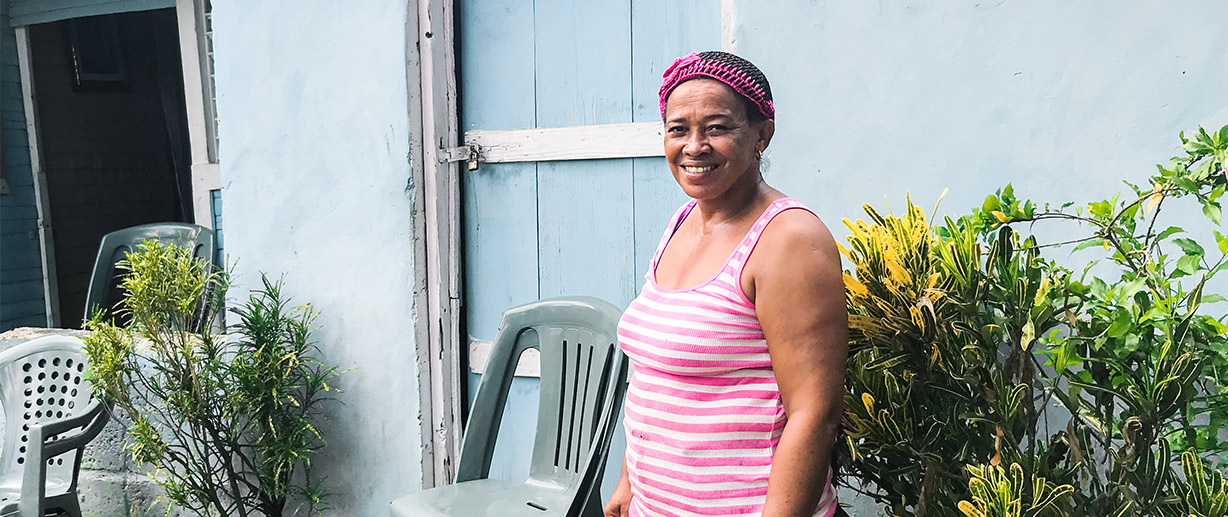By Robert W. Dalton
In a small community in the eastern corner of the Dominican Republic, Santa Rhina Barett Figaro has a thriving business where she sells bread, sandwiches, fried chicken and fresh juices. It was all made possible by a $100 loan through funding provided by the James-Atkins Student-Managed Investment Fund.
It’s a scene that’s played out hundreds of times across the Dominican Republic over the past eight years. The fund has provided $56,000 — $7,000 each year — for Esperanza, a nonprofit founded in 1995, to disburse microloans to people who wouldn’t otherwise have access to capital.
“We’re trying to address poverty for the long haul,” says Dr. Philip Swicegood, R. Michael James Professor and Chair of Accounting, Business and Finance. “If we can move the needle, at least now there’s an opportunity.”
The James-Atkins Student-Managed Investment Fund was established in 2008 with a $100,000 gift from R. Michael James ’73. Robert D. Atkins ’65 provided an additional $100,000 in 2016.
In addition to the program in the Dominican Republic, the fund also provides microloans in Haiti. Its portfolio there is about $22,000.
Slaton Schneider ’22, a finance major from Hoover, Alabama, is the fund’s managing partner this year. She says the fund is a great way to learn about investing, but the microloan component gets members more motivated because of its impact.
“What we’re doing is important learning-wise, and it’s having an impact of alleviating poverty,” Schneider says. “Esperanza is taking the financial support and the business skills and applying them to a social cause. It’s really inspiring.”
In 2020, 49 entrepreneurs in the Dominican Republic received loans ranging from $154 to $774, allowing them to start or grow their family businesses. Loans are made to individuals and to groups, and 245 people were directly impacted in 2020. The average loan is $291.47.
“The loans have helped establish everything from fruit stands to convenience stores,” Schneider says. “We’re helping create ways to generate income and break the cycle of poverty.”

Melinda Clark, Esperanza’s director of development, toured Wofford College’s campus recently and visited with the James-Atkins team members. She told the students about Figaro’s business and how the loan had made a difference in the lives of her family.
“They had been living in a wooden house with dirt floors,” Clark says. Now, with a thriving business, Figaro and her husband were able to build a concrete house for their family. “She has a hope for the future that she didn’t have before, and that matters to us as well.”
Clark says Wofford doesn’t make any demands on how borrowers are selected or on how the funds are used.
“Wofford doesn’t put any restrictions on the money,” Clark says. “They just say to put it where it will do the most good.”
Two years remain on Wofford’s original 10-year commitment to Esperanza. Swicegood would like to see it extended because of the immense impact it has had.
“It’s the greatest feeling in the world to see the people and hear their stories,” Swicegood says. “It really just leaves you speechless. They don’t brag about it, but it’s beautiful to see this dignity and pride that they’re able to better provide for their families. And they just love showing off their businesses.”
